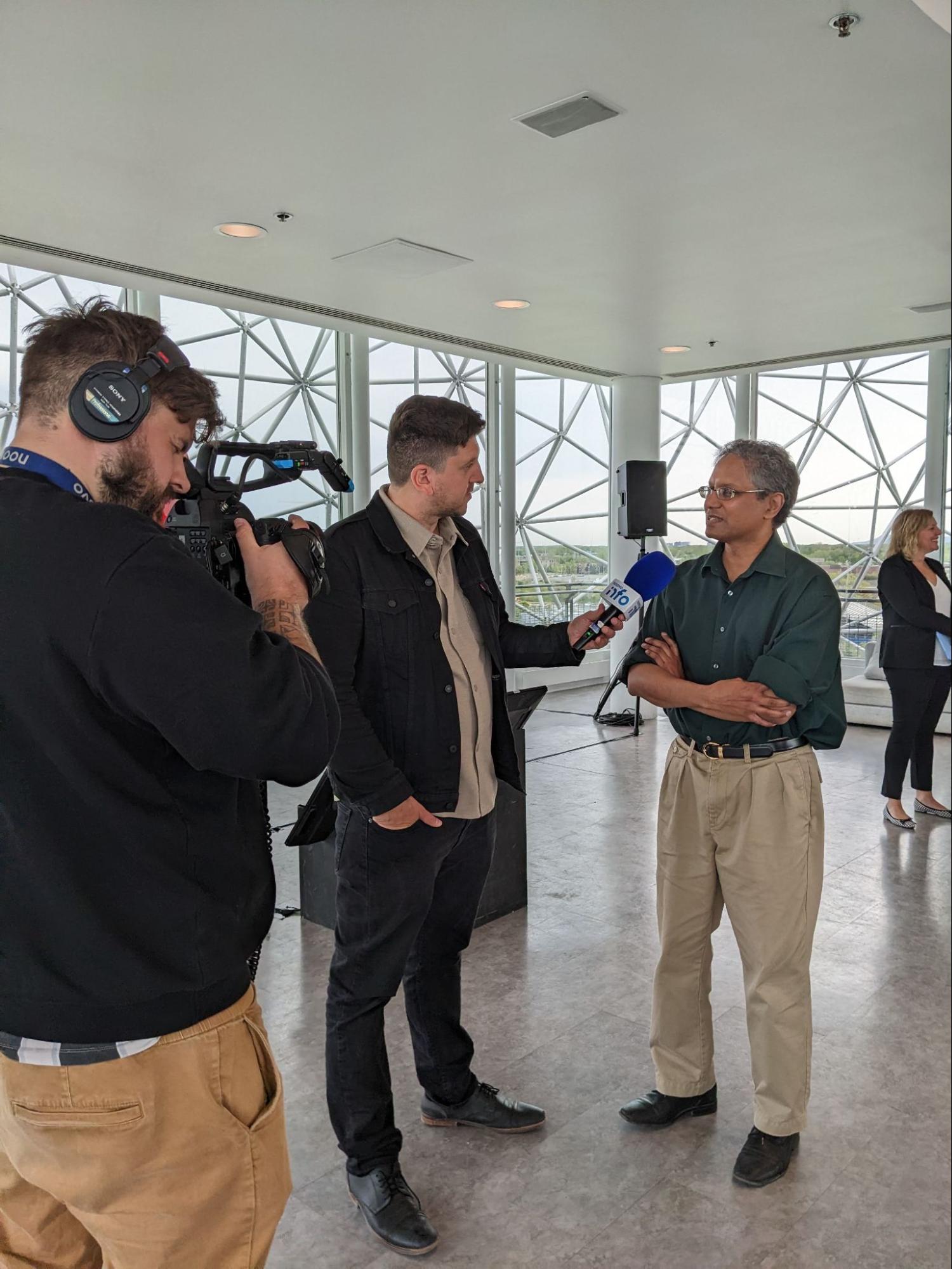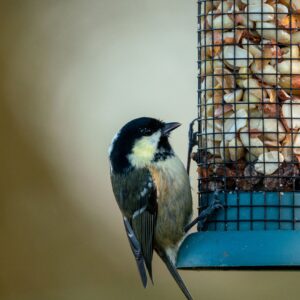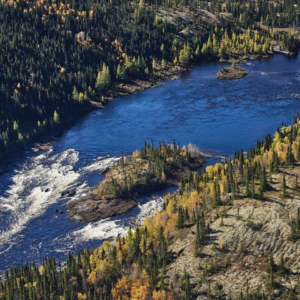A Call for Ambition: Why COP16 Is Canada’s Chance to Lead
At COP15 in Montreal, Canada emerged as a beacon of hope for global biodiversity, playing a pivotal role in brokering the landmark Global Biodiversity Framework (GBF). The agreement, which set ambitious targets to protect 30 percent of the world’s land and oceans by 2030, was hailed as a triumph of international cooperation and a testament to Canada’s leadership.
Since Montreal, Canada has continued to lead the world – we were one of the first countries to draft our National Biodiversity Strategy and Action Plan, the 2030 Nature Strategy. It lays out a laudable plan including Indigenous stewardship of lands and waters, nature-based solutions to climate change, and critical conservation targets as well as other measures to help nature thrive—a point of pride among all Canadians.

Nature Canada’s Policy Director, Akaash Maharaj, pictured here with reporters, will be on the Official Canadian Delegation to COP16. Akaash and I met with Environment Minister Steven Guilbeault along with other ENGO leaders to kick off Canada’s 2030 Nature Strategy.

But as the ink dries on those commitments, we now face a critical test at COP16 in Cali, Colombia. COP16 represents a turning point, not only to solidify the commitments made in Montreal but to raise the bar on ambition and accountability. While the GBF laid the groundwork, we are now tasked with ensuring that its promises are backed by clear, enforceable actions. This is where the real work begins: turning high-level agreements into measurable outcomes that halt and reverse biodiversity loss.
However, Canada’s delegation in Cali will face significant challenges, not least of which is reconciling the often-conflicting interests represented at the negotiating table. Alongside government officials and nature advocates, voices from mining, forestry, and other extractive industries will push their agendas. These sectors are integral to our economy, but their activities often come at the expense of the natural world. The presence of industry voices is not unexpected, but it underscores why it’s crucial for nature’s voice to be equally powerful and persuasive.
As one of the few ENGOs on Canada’s delegation, Nature Canada’s role—and that of our fellow advocates—is to ensure that nature does not get sidelined in favour of short-term economic gains.
We are there to remind decision-makers that protecting biodiversity is not just about conservation: it’s about safeguarding our future, our health, and our economy. The costs of inaction are far greater than any profit margin.
We must seize this moment to advocate for binding commitments, strong accountability mechanisms, and transparent reporting that holds all parties—industry included—to the highest standards. This is not the time for half-measures or watered-down targets. Canada must push for ambitious action that reflects the urgency of the biodiversity crisis.
As Canadians and nature-lovers we should be watching closely. COP16 will reveal whether our country is prepared to lead or if we will falter when it matters most. ENGOs like Nature Canada will be in the room, fighting to ensure that nature’s voice is not just heard but acted upon.
Let’s not allow the momentum of COP15 to fade. It’s time to turn ambition into action and ensure that Canada’s legacy on biodiversity is one of true leadership.
JOIN A GLOBAL MOVEMENT TO HELP INSPIRE THE ACTION WE NEED!
SEND A “MESSAGE OF HOPE” TO DELEGATES AT COP16:



